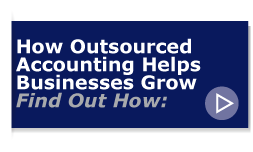
Spreadsheets are versatile enough to manage almost all types of information, but they may not scale up when processing large volumes of complex data, which can prove to be quite a challenge to your bookkeeper. Manually processing travel and entertainment (T&E) expenses can be both effort- and time-intensive, not to mention the possibilities of typographical errors, delays in processing and clearing claims and, mostly importantly, the need for employees to preserve and present paper receipts. This is especially difficult when a firm relies on remote accounting services or bookkeeping services to connect all the dots.
Automating expense reporting and management does away with all the manual process delays and inconveniences and can also prove advantageous in several ways. Companies big and small are embracing automated expense management (check out the announcement from McGladrey selecting Tallie as their SaaS of choice).
Save More Money
An automated accounting process is definitely more precise (as well as faster) because it saves time and effort often lost in repeated data entry at different stages of the manual process. This results in a drastic reduction in processing costs. Data accuracy enables companies to steer clear of any tax risks that may arise due to non-compliance issues.
Employers can analyze centralized T&E data and use employee accommodation and flight preferences to further trim costs. If employees consistently prefer staying at a particular hotel or fly a specific airline, the company can negotiate with these hotels and airlines for discounted pricing.
Seamlessly Integrate Travel Costs into Expenses
With an integrated expense reporting management system, companies can automatically factor in T&E costs into the expense report when reservations for travel or accommodations are made using the software. Such an automated system simplifies auditing expenses and tracking policy violations. Third-party service providers that handle outsourced bookkeeping and outsourced accounting functions can also access this financial data, making it appropriate for any business.
Manage Regulatory and In-House Compliance Effectively
Expense reporting and management software also enables companies to set threshold limits on key expenses for strictly enforcing compliance, which helps block out entries that violate policies and does away with the need to process or reimburse cooked-up claims. The software usually supports standard data such as IRS-approved mileage rates or custom data that prohibits employees from entering unapproved expense items.
Painless Expense Reporting
Automating expense reporting and management frees up resources. It makes the process paperless, speeds up claim reimbursements and makes it possible for people on the move to file claims using mobile apps. In addition, software can also directly deposit the reimbursed funds into the employee’s bank account. This can prove to be a morale booster for people whose jobs involve extensive traveling or significant upfront outlays.
Finally, the level of control that automation allows SMBs the same enterprise-level precision and data that huge companies with enormous software budgets--but without the same costs to maintain or implement. Having access to the same tools and insights helps SMBs compete effectively, from product pricing to attracting and retaining employees. In short, it is a "win-win" on virtually every account.
Need help selecting the right expense management application? Our team of third party integration specialists can help.














